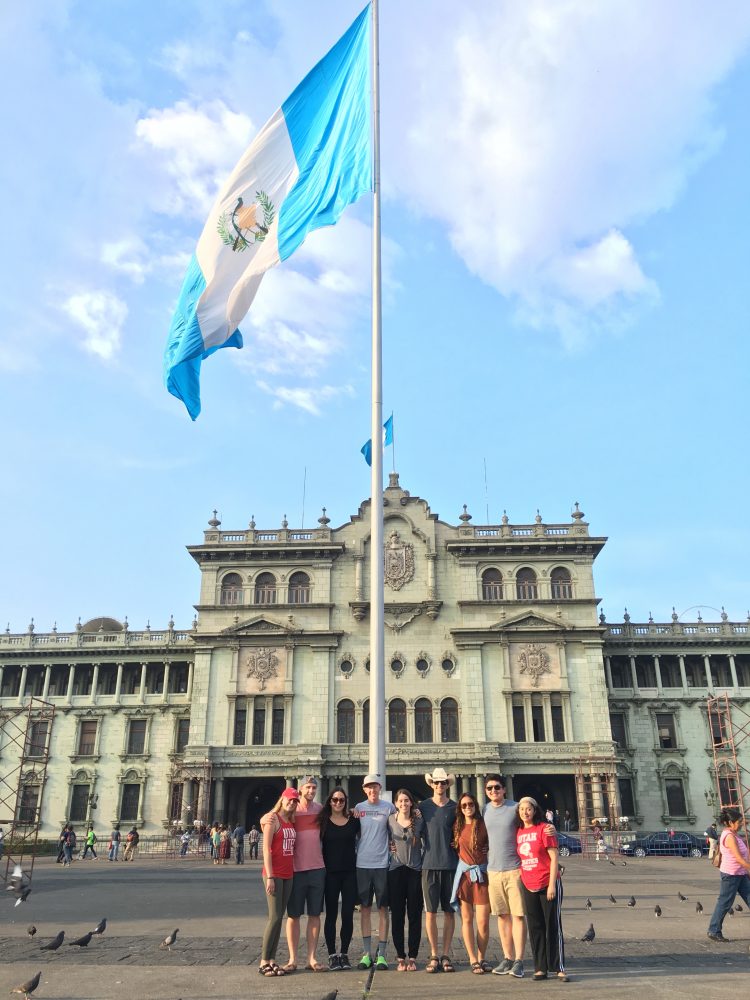at the University of Utah
Day 4: Eccles Ambassadors’ adventure in Guatemala!
Editor’s Note: The David Eccles School of Business Ambassadors traveled to Guatemala for a cultural experience during Spring Break 2016. This is a series of 12 journal entries detailing their experiences. This experience is written by Ryan Herman.
We began the day at 4 a.m. once again, with early starts seeming to become the standard for the trip, and loaded our bus for the long drive back to Guatemala City.
Because of the incredible distance between the two places, we were able to briefly experience what life was like for Guatemalans in rural and undeveloped areas. The poverty that we saw along the way was a snap back to reality for us. So far, we had experienced much of the higher-end of Guatemala, starting with our stay at a luxurious hotel and continuing with Tikal, a highly desired destination for foreign tourists.
However, neither of these places was representative of the financial situation for most Guatemalans every day, as in Guatemala 53 percent of the population is in poverty, with those in extreme poverty fluctuating between 10 and 20 percent of the population. Many of the things we take for granted in the United States, like drinking water and bathroom services, were not available to the people that we saw, and if they were, they certainly weren’t in the capacity that we as Americans have come to expect.
In addition to seeing the conditions that the economic disparity has caused for a large percentage of the people, we also experienced first-hand the tension and unrest that comes with such a large gap in the distribution of wealth. Stuck in a traffic jam, wondering whether it was on account of an accident (as it would have been in the U.S.), we found that instead it was on account of a protest. The people living by the river we were by were protesting the use of the water by a large concrete conglomerate, and it was clear that they were being abused and marginalized by corporate actions.
It was clear that the frustration of the poor was, in pockets, reaching boiling points around the country and that despite the progress made by the revolution, there was a long way to go. However, despite all this, the protest and resulting traffic jam also demonstrated for us the grassroots entrepreneurial spirit of the people and their desire to better their situation, as we watched people walk up and down the row of cars selling their goods, taking advantage of a “captive” market audience.
Their spirit and willingness to work hard to try and change their situation made me wonder what we, those in a position to potentially help, could do to provide these people with the means to better their enterprises and as a result better their local economies.





